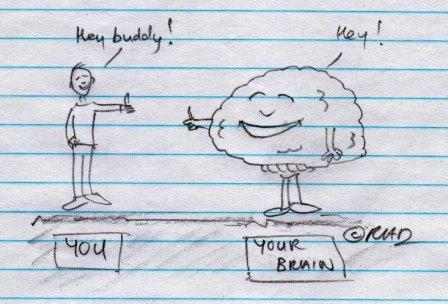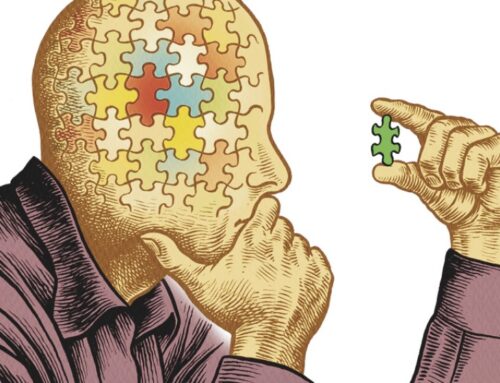You are Not Your Thoughts
August 14, 2020
Categories: Thoughts
Often we live as if our thoughts are our reality. We act like they are the same thing. Unfortunately, identifying too strongly with our thoughts can mess up our lives.
Our Thoughts Can Help
Sometimes our thoughts can help us. If we are an athlete, for example, we might think about an upcoming event, visualizing everything we plan to do in our mind. This can actually help our performance.
Our Thoughts Can Hurt
But often our thoughts can hurt us. We might think we are a crappy person, and no one cares about us. These thoughts could make us feel down and depressed, or stay in bed all day. Or, we might think about all the things that could go wrong during the day. These thoughts could make us feel anxious, or avoid doing something we are afraid of.
Electrical Impulses
At their most basic level, thoughts are electrical impulses that fire off in our brain. They may reflect the reality around us, but they may not. They may reflect who we are deep down, but they may not.
Evaluate Your Thought
Recognizing that my thoughts don’t necessarily reflect who I am has helped me quite a lot. When I experience a negative thought, I’m able to step back and evaluate it. I can weigh the evidence for and against the truth of this thought. If the thought isn’t true, I can try to let it go. Even if I determine the negative thought is accurate, by separating myself from the thought, I’m able to step back and evaluate whether the thought is helping me or hurting me. If the thought isn’t helping me, I can try to let it go.
Discussion
Do you identify too closely with your thoughts? What do you think about the idea of seeing your thoughts as electrical impulses in your brain that may or may not be true?

Related Thoughts
3 Comments
Leave A Comment

Subscribe To My Newsletter
Join my mailing list to receive the latest blog posts.
Receive my e-book “The Mental Health Toolkit” for free when you subscribe.






The Bible indicates that what you think, you become (for example Prov. 23:7).
There are many other passages along the same line. Because of that I am forced to disagree with your thesis.
Also in my experience as a therapist, there again the thoughts were always the root of the problems.
The problem is not in thought. The problem is when it goes without any control and without your will. Anything that goes out of control is when you think you are it and it is you – you are identified with the thought. The moment one can see his thoughts, the moment he is in control. Then he can think the way he wants his life to be…
Yes, I agree with you that thoughts are very important, and that our thoughts are closely linked to our emotions and behaviors. However, I think people can get into trouble when they identify too closely with their thoughts, or completely accept that their thoughts reflect their reality. My sense is that a lot of times when people are struggling with emotional problems, they experience thoughts that may not be accurate or helpful. For example, someone who is depressed might think that they are unlovable, or that no one would want to be their friend. Someone who is anxious about flying in an airplane might think that the chances of an airplane crash are high. In both cases, the thought may seem ‘real’ to the person even though it may not fully reflect reality.